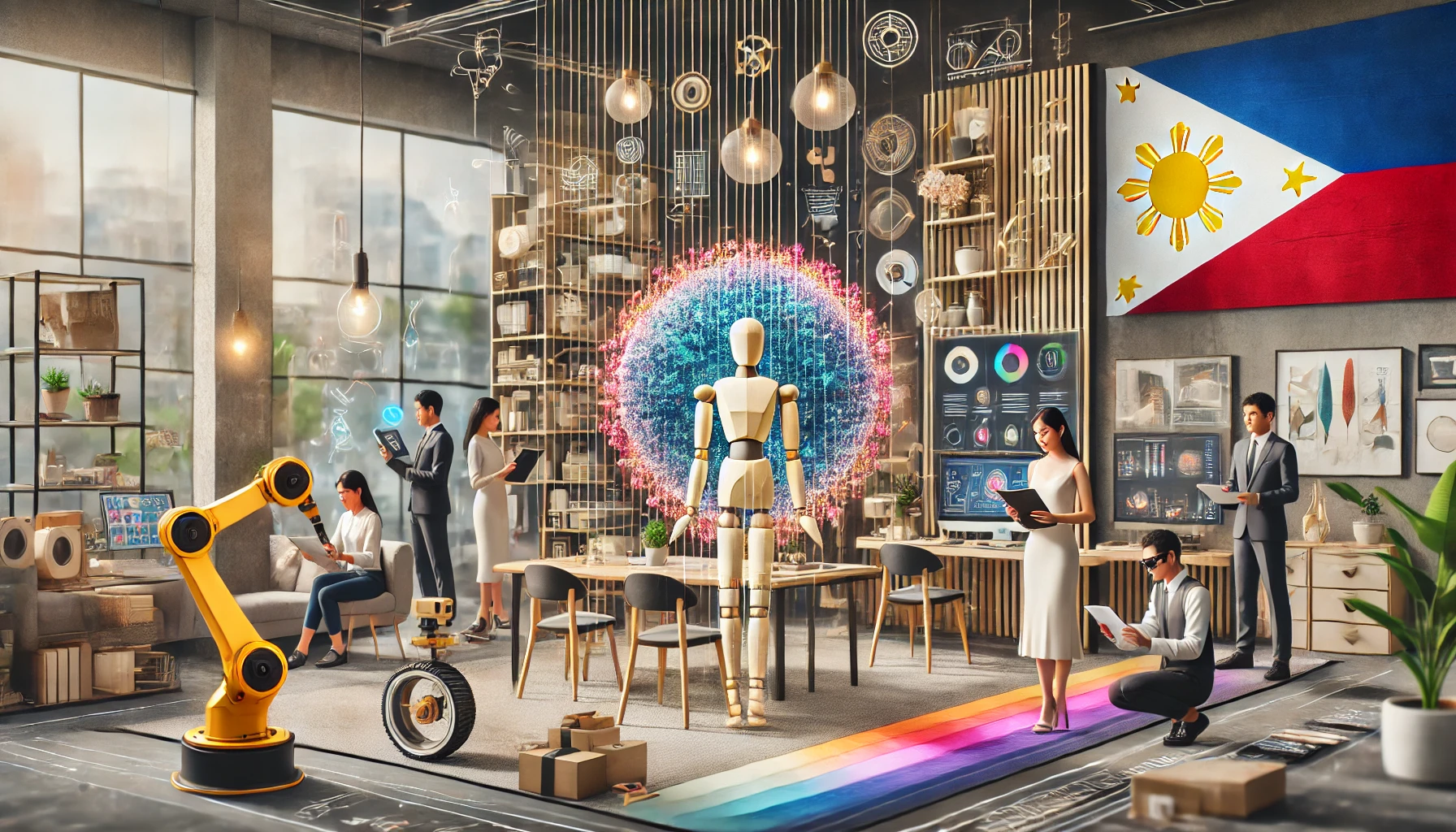The interior design and decoration industry in the Philippines is thriving, driven by a mix of modern urban developments, a growing middle class, and cultural appreciation for aesthetics. With Artificial General Intelligence (AGI) on the horizon, this industry stands to gain tremendously from the transformative potential of this advanced technology. Unlike narrow AI, AGI is designed to perform any intellectual task that humans can, allowing it to revolutionize how interior design firms operate and scale.
1. Personalized Client Experiences
AGI can analyze client preferences, lifestyle habits, and cultural contexts to create hyper-personalized designs. By integrating AGI, firms can provide tailored solutions for each client:
- Dynamic Space Planning: AGI can create design layouts optimized for the client’s needs, whether for residential spaces, offices, or hospitality settings.
- Mood and Style Prediction: AGI can predict trends and recommend styles that resonate with a client’s personality or brand image.
- Virtual Consultations: AGI-powered virtual assistants can simulate client consultations, providing insights on materials, color schemes, and layouts in real time.
2. Automating Design Processes
AGI can take over repetitive and time-consuming tasks, freeing designers to focus on creative aspects. Key applications include:
- 3D Modeling and Rendering: With AGI, firms can instantly generate realistic 3D visualizations of spaces, cutting down on lead times.
- Material Selection: AGI can evaluate thousands of materials based on durability, cost, and aesthetics, recommending the best fit for projects.
- Budget Management: From sourcing materials to estimating project costs, AGI can streamline financial planning, reducing the risk of budget overruns.
3. Trend Prediction and Market Insights
AGI’s ability to process vast amounts of data enables it to predict emerging trends, keeping firms ahead of the competition. By analyzing social media trends, online searches, and market analytics, AGI can:
- Spot Emerging Aesthetics: Identify patterns in consumer behavior to predict upcoming design trends.
- Regional Preferences: Tailor designs to suit cultural and regional preferences unique to Filipino markets.
- Competitive Analysis: Continuously monitor competitors to refine offerings and stay relevant.
4. Sustainability and Smart Living
As the demand for sustainable and energy-efficient designs grows, AGI can play a pivotal role:
- Eco-Friendly Designs: AGI can suggest sustainable materials, energy-efficient appliances, and green building practices.
- Smart Space Integration: With the rise of smart homes, AGI can design spaces equipped with IoT devices for lighting, security, and temperature control.
- Lifecycle Analysis: AGI can predict the environmental impact of designs and recommend solutions to minimize carbon footprints.
5. Marketing and Client Acquisition
AGI-powered tools can revolutionize how firms attract and retain clients:
- Content Creation: AGI can generate high-quality content for websites, blogs, and social media, showcasing the firm’s expertise.
- Targeted Advertising: Advanced algorithms can identify potential clients and run tailored marketing campaigns.
- Client Retention: AGI can analyze client feedback and interactions, ensuring personalized follow-ups and sustained engagement.
6. Streamlining Project Management
AGI can enhance project efficiency through better management and coordination:
- Scheduling and Logistics: AGI can automate scheduling for contractors, suppliers, and designers, ensuring timely project delivery.
- Risk Assessment: By identifying potential project risks early, AGI can provide actionable solutions to mitigate delays or cost overruns.
- Collaboration Tools: AGI can facilitate seamless communication among teams, clients, and vendors through intelligent project management platforms.
Opportunities for Early Adopters in the Philippines
Interior design and decoration firms in the Philippines that adopt AGI early will likely gain a competitive edge. By leveraging AGI, firms can offer:
- Affordable Luxury: Streamlined processes and cost optimization make high-quality designs accessible to a broader audience.
- Innovative Portfolios: Cutting-edge designs that incorporate global trends and local traditions.
- Scalable Operations: With AGI, even small firms can expand their reach and handle larger projects efficiently.
Challenges and Considerations
While AGI offers immense potential, firms must navigate certain challenges:
- Initial Investment: Implementing AGI systems may require significant upfront costs.
- Data Privacy: Ensuring client data security is critical when working with advanced AI tools.
- Skill Gap: Firms may need to train staff to work alongside AGI systems effectively.
Conclusion
The integration of Artificial General Intelligence into interior design and decoration firms in the Philippines offers unparalleled opportunities for growth, efficiency, and innovation. By embracing AGI, firms can redefine their approach to design, providing exceptional services while staying competitive in a dynamic market. Early adoption is key, and with strategic planning, Filipino firms can position themselves as leaders in the global interior design industry.
The future of interior design is here—and AGI is at its core.
[SEO optimized]


